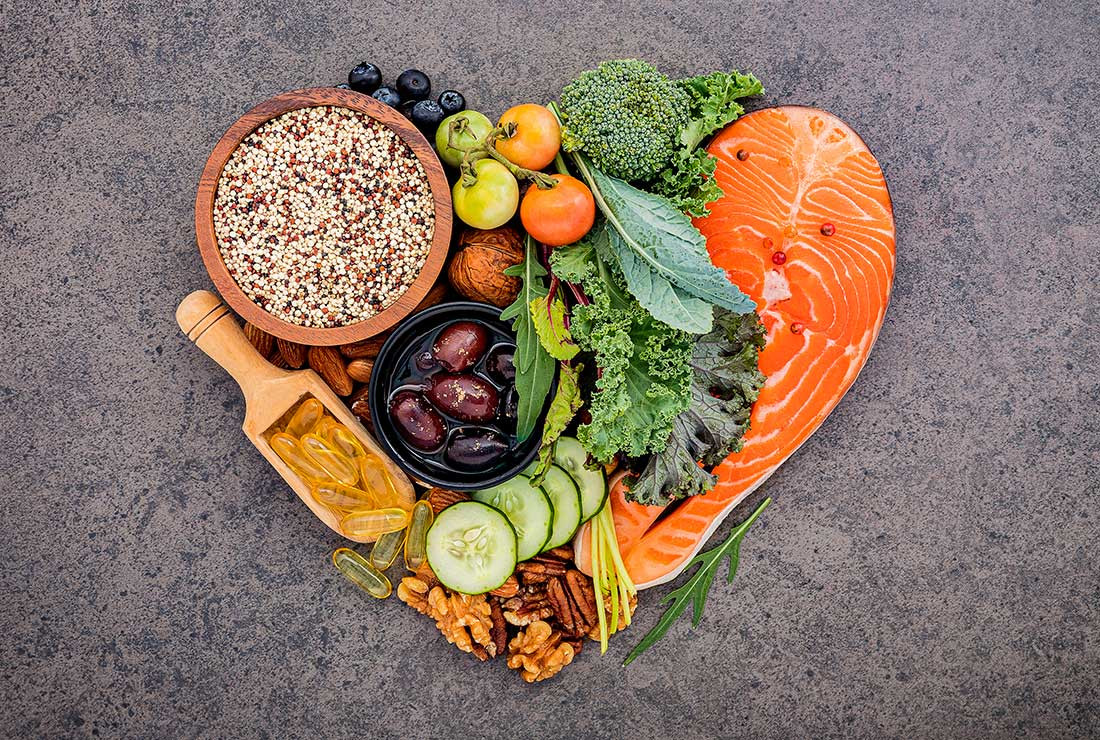All About Healthy And Balanced Food: Benefits of Checking Out Plant Based Options
The conversation surrounding plant-based diet regimens has gained considerable attention in recent times. Several individuals are discovering the potential health and wellness benefits, nutritional benefits, and environmental influences linked with these dietary choices. As people come to be much more mindful of their food's impact on well-being and sustainability, inquiries arise regarding the functionalities of adopting such a lifestyle. What specific adjustments can one anticipate, and how might these selections improve not just individual health and wellness yet additionally the world's future?
Comprehending Plant-Based Diet Plans
Many individuals associate plant-based diet regimens mainly with vegetarianism or veganism, these diet plans can include a vast range of eating patterns that focus on entire, minimally processed plant foods. Such diet regimens usually consist of fruits, veggies, whole grains, nuts, seeds, and vegetables, while eliminating or limiting pet products. This adaptability enables people to customize their nutritional selections according to personal choices and dietary requirements. Some may embrace a mostly plant-based diet regimen while still sometimes consuming meat or dairy, frequently referred to as a flexitarian technique. The emphasis continues to be on integrating even more plant foods, which can bring about a varied range of tastes and dishes. Recognizing these various interpretations of plant-based eating is vital for valuing its accessibility and appeal in modern food culture.
Wellness Benefits of Plant-Based Foods
The health and wellness advantages of plant-based foods are significant, offering a nutrient density advantage that sustains overall well-being. Research suggests that these foods can enhance heart health and play an important function in reliable weight administration. By including more plant-based alternatives, people may boost their nutritional selections and advertise long-term health and wellness.
Nutrient Thickness Advantage
Nutrient thickness plays a vital duty in the health benefits of plant-based foods, making them an engaging choice for those looking for a balanced diet regimen. Plant-based foods, such as fruits, vegetables, beans, nuts, and entire grains, are often abundant in necessary vitamins, minerals, and antioxidants while being reduced in calories. This high nutrient thickness enables individuals to consume fewer calories while still satisfying their nutritional demands. Furthermore, these foods are loaded with dietary fiber, promoting gastrointestinal wellness and helping in weight management. By incorporating nutrient-dense plant-based alternatives, customers can boost their general health and wellness, support their body immune systems, and minimize the danger of chronic illness. Ultimately, the nutrient density of plant-based foods emphasizes their importance in a health-conscious way of life.
Heart Wellness Renovation

Weight Monitoring Assistance
Along with promoting heart wellness, a plant-based diet plan can substantially assist in weight management. This nutritional technique highlights whole foods such as fruits, vegetables, beans, nuts, and whole grains, which are generally reduced in calories and greater in fiber contrasted to animal-based items. The high fiber content helps raise satiation, lowering total calorie consumption. Plant-based diet regimens are usually abundant in important nutrients while reduced in harmful fats, making it easier to maintain a healthy and balanced weight. Research suggests that individuals that adopt a plant-based way of living have a tendency to have lower body mass indexes (BMIs) and experience even more successful weight management contrasted to those that consume meat-heavy diets. Welcoming plant-based choices is a calculated option for efficient weight monitoring.
Nutritional Value of Plant-Based Ingredients
Plant-based ingredients are abundant in important nutrients, supplying a diverse selection of vitamins, minerals, and antioxidants that add to overall health. A comparison of protein sources discloses that while animal products are usually considered as premium, many plant-based alternatives offer sufficient protein and various other helpful substances. Comprehending the nutritional value of these ingredients can aid people make educated nutritional options.
Vital Nutrients in Plants
Nutrient-rich active ingredients found in plants offer a varied range of crucial minerals and vitamins that contribute significantly to total health. These ingredients are abundant in vitamins A, C, and K, which support immune function, vision, and blood clot, specifically. On top of that, plants offer important minerals such as potassium, magnesium, and calcium, crucial for heart wellness, muscle feature, and bone strength. The visibility of fiber in plant-based foods help food digestion and promotes a healthy digestive tract microbiome. Anti-oxidants, discovered abundantly in vegetables and fruits, assistance battle oxidative tension and lower swelling. Moreover, many plant foods are low in calories yet high in nutrients, making them an outstanding selection for those seeking to maintain a healthy and balanced weight while ensuring ideal nutrient consumption.
Contrasting Healthy Protein Resources
Protein resources differ substantially in their nutritional accounts, with plant-based components using unique advantages. Unlike animal healthy proteins, which frequently have hydrogenated fats and cholesterol, plant proteins often tend to be lower in these harmful parts. Legumes, nuts, seeds, and entire grains are rich in necessary amino acids, fiber, vitamins, and minerals. As an example, lentils give high healthy protein web content along with substantial iron and folate, while quinoa is a full protein, using all nine crucial amino acids. In addition, plant-based proteins are usually accompanied by anti-oxidants and phytochemicals that support general health. The change to plant-based healthy protein resources not just boosts dietary consumption but additionally lines up with lasting nutritional methods, minimizing ecological effect and advertising long-term health and wellness benefits.
Environmental Influence of Plant-Based Consuming
As awareness of environment adjustment expands, lots of people are checking out lasting dietary options that can greatly reduce their environmental footprint. Plant-based eating has actually arised as a substantial contributor to reducing greenhouse gas exhausts, which are largely connected with livestock manufacturing. The growing of fruits, vegetables, vegetables, and grains normally needs fewer sources, such as water and land, compared to pet farming. Furthermore, plant-based diet why not check here plans can lead to decreased deforestation, as much less land is required for grazing livestock or expanding pet feed. By shifting towards plant-based choices, customers can sustain biodiversity and promote healthier environments. Overall, accepting plant-based eating not just advantages personal health and wellness yet also stands for a crucial step toward ecological sustainability and conservation initiatives.
Conquering Common Misconceptions
While several people acknowledge the advantages of a plant-based diet plan, a number of false impressions commonly prevent them from fully welcoming this lifestyle. A typical belief is that plant-based diet plans lack adequate protein; nevertheless, countless plant sources, such as beans, nuts, and tofu, give sufficient healthy protein. Furthermore, some assume that this diet regimen is expensive, when actually, staples like beans, rice, and seasonal veggies can be quite budget-friendly. An additional misconception is that plant-based consuming is excessively restrictive, whereas it in fact offers a varied array of tastes and foods. Finally, lots of worry that a plant-based diet plan might cause deficiencies, yet with proper preparation, individuals can acquire all necessary nutrients, including minerals and vitamins, while appreciating a variety of tasty dishes.
Tips for Transitioning to a Plant-Based Way of living
Making the change to a plant-based lifestyle can be an improving experience, though it often needs some guidance to browse the preliminary changes. First, people are urged to start slowly, integrating more fruits, veggies, vegetables, and entire grains right into their meals while decreasing meat and dairy usage. Dish planning is necessary; preparing a weekly food selection can help relieve the modification and avoid final unhealthy options. Checking out cooking methods and new recipes can also preserve and boost the experience enjoyment about plant-based eating. Furthermore, signing up with support system or neighborhoods can supply motivation and share useful pointers. Staying informed about nourishment warranties well balanced dishes, preventing shortages while promoting a healthy and balanced, gratifying plant-based way of living.

Delicious Plant-Based Meal Concepts
Exploring scrumptious plant-based dish concepts can influence individuals to embrace a much more nutritious diet regimen. One preferred option is a hearty quinoa salad, featuring cherry tomatoes, cucumber, and a zesty lemon-tahini clothing. An additional favorite is a tasty lentil stew, loaded with carrots, celery, and great smelling natural herbs, best for a reassuring supper. For morning meal, overnight oats made with almond milk, chia seeds, and covered with fresh berries give a nutritious begin to the day. Furthermore, a lively veggie stir-fry with tofu and a range of colorful veggies can be a quick yet pleasing meal. Lastly, luscious avocado toast on whole-grain bread, sprinkled with seeds and seasonings, provides a straightforward yet flavorful snack. These meals showcase the selection and splendor of plant-based consuming.

Frequently Asked Concerns
Can a Plant-Based Diet Regimen Give Sufficient Protein?
The concern of whether a plant-based diet plan can supply sufficient protein is common. Many sources, including vegetables, nuts, seeds, and entire grains, click to read can satisfy healthy protein needs efficiently, sustaining a healthy and well balanced diet regimen for people.
Are Plant-Based Diet Plans Ideal for Kid?
The suitability of plant-based diet plans for youngsters depends upon mindful preparation. Appropriate nutrients need to be ensured, including minerals, healthy proteins, and vitamins. With appropriate assistance, such diet plans can sustain healthy development and advancement in kids.
How Do I Eat in restaurants on a Plant-Based Diet plan?
Eating in restaurants on a plant-based diet plan involves seeking restaurants with diverse food selections, requesting for alterations, and exploring vegan-friendly alternatives. Planning ahead and interacting nutritional preferences can boost the dining experience while preserving nutritional selections.
What Are Usual Irritants in Plant-Based Foods?
Typical allergens in plant-based foods consist of soy, gluten, nuts, and seeds - Plant Based Chicken. Individuals complying with a plant-based diet regimen should recognize these irritants and check out tags meticulously to prevent damaging responses and guarantee risk-free consumption
Can Plant-Based Diets Aid With Weight-loss?
Study indicates that embracing a plant-based diet plan may facilitate weight loss because of its typically reduced calorie density and greater fiber web content. This combination can boost satiety, assisting people manage their caloric consumption successfully. Numerous people associate plant-based diets generally with vegetarianism or veganism, these diet regimens can incorporate a broad variety of eating patterns that prioritize whole, minimally processed plant foods. Nutrient density plays a crucial function in the health see here now advantages of plant-based foods, making them a compelling option for those seeking a balanced diet. Plant-based diet plans have been revealed to markedly improve heart wellness, as they usually have aspects that support cardiovascular function. In enhancement to promoting heart health, a plant-based diet can substantially aid in weight monitoring. An usual idea is that plant-based diet plans do not have sufficient healthy protein; however, various plant sources, such as legumes, nuts, and tofu, supply enough protein.